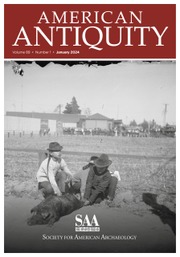No CrossRef data available.
Article contents
First Note on the Archaeology of the Mohawk Town of Ossernenon
Published online by Cambridge University Press: 25 January 2017
Extract
The grounds of the shrine dedicated to three of the canonized North American Martyrs, in the township of Auriesville, N.Y., have long been believed to embrace the site of the Mohawk town of Ossernenon. The two reasons for such an opinion have been principally: the topography, and the surface finds. To this evidence may be added the sundry post-contact Indian graves found nearby. In order to locate and study the town accurately, excavations were made on the shrine grounds, during the summer of 1952, under the direction of the writer.
The site is situated on a terrace, some 400 feet above sea level, on the south side of the Mohawk River, 40 miles up the river from its confluence with the Hudson, and a mile upstream from the juncture of the Schoharie River with the Mohawk. The area is represented on the' Fonda Quadrangle of the U.S. Geological Survey maps, and on the map accompanying the monograph of Brigham (1929, p. 60), who calls this terrace the Schoharie Wash Plain, and identifies it to be a lacustrine formation dating from the closing phase of the last glaciation.
- Type
- Facts and Comments
- Information
- Copyright
- Copyright © The Society for American Archaeology 1953


